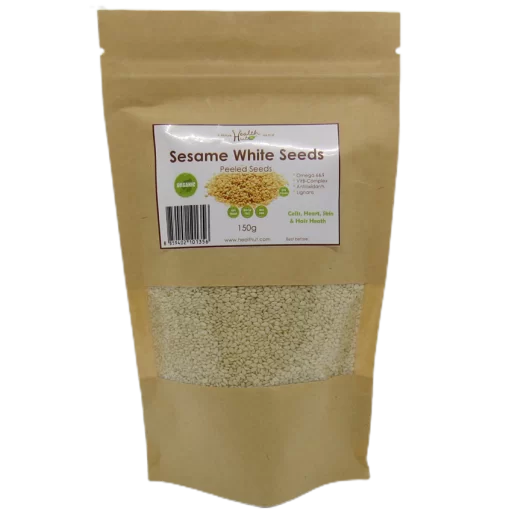Health benefits of sesame seeds :
- Good Source of Fiber
Fiber is well known for supporting digestive health. Additionally, growing evidence suggests that fiber may play a role in reducing your risk of heart disease, certain cancers, obesity, and type 2 diabetes.
- May Lower Cholesterol and Triglycerides
Some studies suggest that regularly eating sesame seeds may help decrease high cholesterol and triglycerides — which are risk factors for heart disease. Research indicates that eating more polyunsaturated and monounsaturated fat relative to saturated fat may help lower your cholesterol and reduce heart disease risk. What’s more, sesame seeds contain two types of plant compounds — lignans and phytosterols — that may also have cholesterol-lowering effects
- Nutritious Source of Plant Protein
Sesame seeds supply 5 grams of protein per 3-tablespoon (30-gram) serving. Protein is essential for your health, as it helps build everything from muscles to hormones. Notably, sesame seeds are low in lysine, an essential amino acid more abundant in animal products. However, vegans and vegetarians can compensate by consuming high-lysine plant proteins — particularly legumes, such as kidney beans and chickpeas.
- Good Source of B Vitamins
Sesame seeds are a good source of certain B vitamins, which are distributed both in the hull and seed. B vitamins are essential for many bodily processes, including proper cell function and metabolism.
- Rich in Antioxidants
The lignans in sesame seeds function as antioxidants, which help fight oxidative stress — a chemical reaction that may damage your cells and increase your risk of many chronic diseases. Additionally, sesame seeds contain a form of vitamin E called gamma-tocopherol, an antioxidant that may be especially protective against heart disease.
Source:https://www.thespruceeats.com/sesame-seed-selection-and-storage-1807805https://www.healthline.com/nutrition/sesame-seeds#TOC_TITLE_HDR_2
